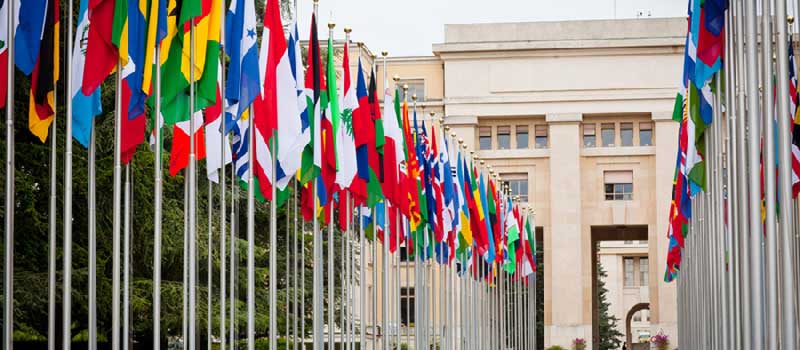Countries that Recognize Palestine in 2025
Countries and Years of Recognition: A Tabular Overview
To provide clarity on the scope of Palestine Statehood Recognition, the following table enumerates select countries grouped by the year of recognition. Due to the extensive list of 157 states, this illustration focuses on key examples across decades, highlighting patterns in regional adoption. Comprehensive lists are available through UN records.
| Year | Countries (Select Examples) | Notes |
|---|---|---|
| 1988 | Algeria, Angola, Bangladesh, Cuba, Egypt, India, Indonesia, Jordan, Libya, Malaysia, Morocco, Saudi Arabia, Turkey, Vietnam, Yemen | Initial wave post-Declaration; over 80 nations, mainly Arab and non-aligned states. |
| 1990s | Belarus, Bosnia and Herzegovina, Namibia, South Africa (1995), Ukraine | Post-Cold War transitions; African solidarity prominent. |
| 2000s | Brazil (2010), Montenegro (2006), Paraguay (2005), Sweden (2014, but early 2000s ties), Timor-Leste (2005) | Latin American and Balkan recognitions amid Oslo follow-up. |
| 2010s | El Salvador (2013), Honduras (2011), Russia (2011), Thailand (2012), Vatican City (2015) | Steady growth; Vatican upgrade emphasized religious diplomacy. |
| 2024 | Armenia, Bahamas, Barbados, Ireland, Jamaica, Mexico, Norway, Slovenia, Spain, Trinidad and Tobago | Gaza war catalyst; 10 new recognitions, focusing on Europe and Caribbean. |
| 2025 | Andorra, Australia, Belgium, Canada, France, Luxembourg, Malta, Monaco, Portugal, United Kingdom | September UNGA surge; 11 additions, shifting Western stance. |
This table demonstrates the chronological evolution of Palestine Statehood Recognition, from rapid post-1988 adoption to the 2025 tipping point.
The quest for Palestine Statehood Recognition remains a cornerstone of international diplomacy in the Middle East. As of September 2025, Palestine Statehood Recognition has advanced significantly, with 157 United Nations member states acknowledging the State of Palestine as a sovereign entity. This figure represents approximately 81 percent of UN members, underscoring a broad global consensus on the legitimacy of Palestinian self-determination. Palestine Statehood Recognition, which traces its modern origins to the 1988 Declaration of Independence by the Palestine Liberation Organization, has gained renewed momentum amid ongoing conflicts, particularly the Israel-Hamas war that escalated in October 2023. This article examines the historical context, recent developments, and implications of Palestine Statehood Recognition, illustrated by a comprehensive table of recognizing countries and their respective years of acknowledgment.
Historical Context of Palestine Statehood Recognition
Palestine Statehood Recognition emerged prominently following the 1988 proclamation in Algiers, which prompted immediate endorsements from over 80 nations, primarily from the Global South, including much of Africa, Asia, and Latin America. These early recognitions were often aligned with decolonization movements and solidarity against perceived imperialism. By the early 1990s, the Oslo Accords between Israel and the Palestine Liberation Organization further legitimized Palestinian aspirations, encouraging additional states to formalize ties.
Throughout the 2000s and 2010s, Palestine Statehood Recognition expanded gradually. In 2012, the UN General Assembly upgraded Palestine’s status to non-member observer state, a pivotal step that affirmed its international personality without granting full membership. Sweden’s 2014 recognition marked the first in Western Europe, setting a precedent for others. However, major Western powers like the United States, Germany, and France historically withheld recognition, citing the need for direct negotiations with Israel under the two-state solution framework.
The year 2024 witnessed a surge in Palestine Statehood Recognition, driven by international outrage over the Gaza conflict. Norway, Ireland, and Spain coordinated their announcements in May, followed by Slovenia, Armenia, and several Caribbean nations including Barbados, Jamaica, Trinidad and Tobago, and the Bahamas. Mexico also joined in early 2025, bringing the total to 147 by mid-year. These actions reflected a strategic push to bolster Palestinian diplomacy and pressure for a ceasefire.
Recent Developments in 2025
The most dramatic acceleration in Palestine Statehood Recognition occurred in September 2025, coinciding with the UN General Assembly’s 80th session. A French-Saudi co-chaired summit on the two-state solution preceded announcements from ten Western-aligned nations, marking a seismic shift. On September 21, the United Kingdom, Canada, Australia, and Portugal formally extended recognition, framing it as essential to preserving peace prospects amid Gaza’s humanitarian crisis. The following day, France, Belgium, Luxembourg, Malta, Andorra, and Monaco followed suit, elevating the total to 157.
This wave of Palestine Statehood Recognition from traditional Israeli allies like the UK and France has isolated Israel diplomatically. Israeli Prime Minister Benjamin Netanyahu condemned the moves as “rewarding terrorism,” vowing no Palestinian state would emerge west of the Jordan River. Conversely, Palestinian Authority President Mahmoud Abbas hailed the endorsements as a “game changer” for self-determination. The UN’s non-binding resolution on September 12 further supported these efforts, urging Security Council reconsideration of Palestine’s full membership bid, previously vetoed by the US in April 2024.
Implications and Challenges
Palestine Statehood Recognition carries profound diplomatic weight, enabling bilateral relations, embassy establishments, and enhanced UN participation. It bolsters the Palestinian Authority’s legitimacy and pressures Israel toward negotiations, aligning with the two-state paradigm endorsed by the international community. Legally, recognition affirms Palestine’s fulfillment of statehood criteria—permanent population, defined territory, government, and capacity for relations—per the Montevideo Convention.
Yet challenges persist. The US, alongside nations like Germany and Japan, maintains non-recognition, viewing it as premature without Israeli consent. Israel’s ongoing settlement expansion in the West Bank and military operations in Gaza undermine territorial viability. Moreover, while 157 recognitions exist, full UN membership requires Security Council approval, where US veto power looms large.
The 2025 recognitions signal a potential paradigm shift, fostering multilateral initiatives like the French-proposed International Stabilisation Force for Gaza governance. As global frustration mounts—over 65,000 Palestinian deaths and widespread displacement—these steps may catalyze renewed peace efforts.
In 2025, Palestine Statehood Recognition has reached unprecedented levels, with 157 nations affirming Palestinian sovereignty. This milestone, visualized in the table above, reflects evolving international norms toward equity in the Israeli-Palestinian conflict. While symbolic, these endorsements provide tangible diplomatic leverage, urging accountability and dialogue. As the UNGA convenes, the path to a viable Palestinian state hinges on translating recognition into action, ensuring a just resolution for all parties.
